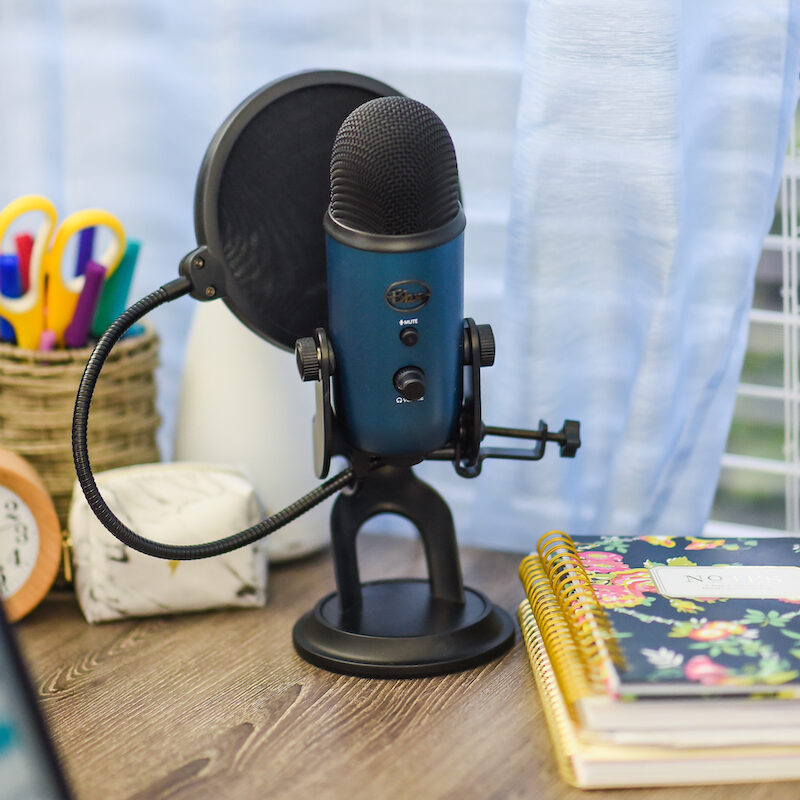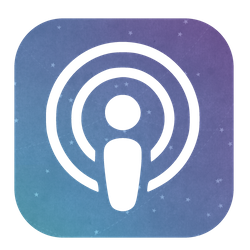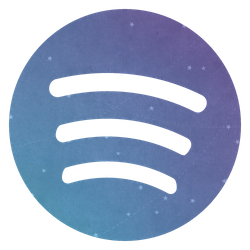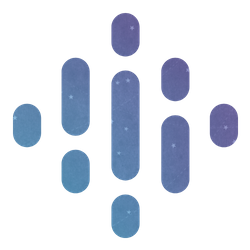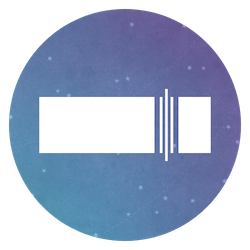episode 37
How to Have a “Successful” Discovery Call
Today Sam & Karyn discuss the value of reflecting on where you are now as a salesperson so you can see growth areas and how to show up confident and prepared on your next discovery call.
Episode 37: How to Have a "Successful" Discovery Call
Show Notes:
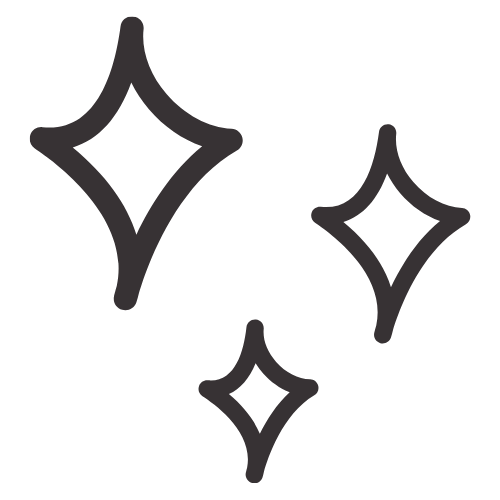





Episode Transcript:
Karyn Paige, Sam Munoz
Karyn Paige 00:00
started off in a place that felt comfortable for you. So you could just show up. And then you understood that there is a value of reviewing and reflecting in order to improve. And so even though that that didn’t always feel good, or you know, you felt a little bit of fear to do that, you were able to coach yourself through that, because you saw why it was important for you what the benefit for you was in revealing. And then you’re able to take what you learned from your review, we find your outline, notice some patterns. And notice there’s there’s some things that I always want to talk about that I always want to cover in a call. And now, five years later, you’re like, give me all the discovery calls. I want them. I love them, bring it.
Sam Munoz 00:49
Welcome to Making website magic where we empower women to step boldly into their web design businesses follow their intuition and claim the success they’re worthy of. I’m Sam Munoz.
Karyn Paige 01:00
And I’m Karen Page, where the Tech Wizards behind Sam Linnaeus consulting and the making website Magic School of Business, where two women here to talk about what it actually takes to run a web design business that’s aligned with your vision.
Sam Munoz 01:12
Spoiler alert, it probably isn’t what you think it is ready to hear about everything from refining your business vision, networking with intention and creating a magical client experience. Let’s do it. Well, hello there, Karen.
Karyn Paige 01:30
Hey, Sam, how’s it going?
Sam Munoz 01:33
It’s going so well. We were chatting about zoom, nostalgia and 2020 2021 and the endlessness of the zooming. But that is kind of actually related to our topic today. So there you go. love a good segue right in the beginning, we are talking today about how to have a successful discovery call. And right off the bat, I want to let you know that the words how to have nice quotation marks around them. Because we are not about giving you step by step things that you have to follow formulas, etc. It’s very much strategies, tactics, different things that have worked, that you can consider doing as you’re navigating a discovery call and looking to make them a little bit more successful, which is also a word that you get to define as well. Mm
Karyn Paige 02:21
hmm. Yeah. How to in air quotes, because considerations for having a successful discovery call? Not really good SEO. So
Sam Munoz 02:31
find it, right. I mean, I feel like every word needs, like, quotation marks even successful, like quotations. Right. But let’s, let’s start with where we always like to start, which is why are we talking about this topic today?
Karyn Paige 02:43
Okay, surely. So one, this is just a out of the gate acknowledgement that you’re getting on Discovery calls, yay, like, yes. But perhaps there’s something that might not be working, right?
Sam Munoz 02:56
Exactly. Like there’s a kink in the system, you are booking discovery calls, you’re waking up, you’re looking at your calendar, you got a discovery call on the list, but maybe you either are not converting those calls, or you’re not really feeling as confident as you want to feel on them. They’re not feeling like they’re in flow. And so something is not necessarily working for you. And we want to spend some time with this episode, just honoring the idea of improving and refining and the fact that this can happen at any time in your business. This is something that you can come back to time and time again, refinement is always going to be something that is a pillar in your business, if you’re looking to grow and move forward. It’ll get crazy, it’ll get hairy, and then you refine it and you improve. And we love really advocating for that idea of continuous improvement. Because I think that that honors the fact that we’re not perfect, that there’s always room to grow.
Karyn Paige 03:53
Yeah. And also recently, we’ve been talking a lot about things that you can do and considerations you can make to elevate your business right to elevate your price point to elevate your client experience. And so this conversation around discovery causes really unpacking the idea of elevating, like taking to the next level what you’re already doing with your discovery calls, maybe elevating your sales process, elevating your competence and communicating on Discovery calls. So that is another reason why we’re talking about this today.
Sam Munoz 04:24
Yes. Okay. So we thought it would be kind of fun to spend some time before we get into those strategies, talking about where you are now reflecting on your discovery calls now. And we have two questions we want to ask you and maybe you pause the episodes, write your answers down, or it’s something you can just kind of have in the back of your mind as you’re listening. But number one, how do you feel in your body like physically feel before getting on a discovery call when you’re on it? And afterwards? So how does it feel physically to experience discovery calls?
Karyn Paige 04:58
Yeah, I want to Talk about the second question too, before we really unpack so the second question to consider is, what is your current conversion rate for discovery calls? So how many calls are you getting? And then how many clients? Are you booking from the calls? Right? So let’s say you got on 10 discovery calls last year, and you booked five projects. And that would mean you have a 50% conversion rate, right? If you got on 10 calls, and you booked two clients, that would mean you had a 20% conversion rate. So pause, think about what’s your conversion rate currently? And how are you currently feeling in your body. And then when you come back, you’ll hear us talk about a little bit deeper, why.
Sam Munoz 05:40
And the reason we really invite you to do this is because improvement is hard, right? Creating improvement, refinement, and all that stuff is really hard to do unless you fully understand and acknowledge where you are now. So if we give you all these strategies, and how tos, and you don’t fully understand what your conversion rate is, or how you feel, or just how discovery calls are going now in general, it’s really hard to say, oh, that’s an area for growth. That’s something that I want to implement, right? So spend some time here spend some time really thinking about the discovery call process, and what that looks like, in your business today, right? In this moment.
Karyn Paige 06:17
Yeah, that reminds me of what you are often reminding us to do, which is really look at the data, you know what I mean? Like, if you don’t have the data, you can’t look at it and kind of gauge where to grow. Right?
Sam Munoz 06:28
It’s really interesting, Karen, because that is, like the main reason that I journal, I don’t enjoy journaling in my personal life, like the process feels very tedious. It’s just you know, I can type really fast. And so like, getting out of pen and paper and writing things down sometimes feels like walking through mud. But the reason that I spend time journaling is so that I can look back at that data and information, right. Sometimes I’m literally writing down numbers, sometimes it’s feelings or whatever. But it’s almost like the the fact that I have that catalogue of what has happened, really helps to see the growth, see the improvement, see where I want to grow. So it’s really similar concept.
Karyn Paige 07:06
Okay, cleaner that tangent? Here I go. So you mentioned journaling, I started calling that logging. And it feels very Captain’s log, like very Star Trek. But you’re so right, because journaling did not feel like something I was interested in doing. But now I’m like, I have this log. And I can go back to this date and see how I was feeling what I did what happened. And I can use that data to inform if my experience if there’s any cycles, if there’s any of this already that pullback,
Sam Munoz 07:33
but that’s totally connected. Karen. So yes, spend some time going through thinking about the discovery calls now. And then let’s talk about the strategies the how to.
Karyn Paige 07:45
Okay, so just like really quickly, before we move on, though, I want to circle back to the question of how does it feel in your body, right? So this might be something that you an exercise you’ve never tried before. But it’s really kind of coming from this place that our body is communicating with us about how we’re feeling. So sometimes if it’s hard for us to pinpoint a feeling like happy, sad, anxious, nervous, excited, right? Like there are some signals that our body will give us to inform the language that we use rohner feeling. So you know, how are you feeling in your body? Do you feel tense? Do you have maybe like a pit or butterflies in your stomach? Is your heart racing? Do you feel shortness of breath? Like, you know, are your shoulders cramped up by your ears? You know, like, do your hands start to feel cold, like those kinds of things like notice how you’re feeling in your body in that regard, before you’re getting on Discovery calls, and then keep that information, keep that data handy. And then we’ll go into, you know what to do with that in a little bit.
Sam Munoz 08:44
Perfect. So you’ve got all that information, right, you’ve got the info about how discovery calls feel now. So now we want to transition into some of the strategies and again, as we always invite you take what feels good leave what doesn’t you have the information about how you’re feeling now and what your conversion rate is now, so you’ll know you will know what to take and what to leave. So let’s just jump into the first strategy that we have, which is preparing. And I really think that it’s important to mention that we have an episode around the fear of discovery calls, it’s episode five. And if preparing and just the idea of like getting ready for a discovery call is eliciting a lot of those bodily sensations that Karen mentioned, like sweaty palms, like
Karyn Paige 09:26
dry mouth.
Sam Munoz 09:29
Like what isn’t sensation. If you’re feeling those things, you might be experiencing fear. So 100% go back and listen to that one because we really dig into the fear there. But preparing is such an important and valuable strategy for having a more successful discovery call. So there’s a couple ways you can prepare and we have it from two different lenses kind of like the body and the mind.
Karyn Paige 09:53
Hey, okay, very, very, like tangibly, right very strategically. Prepare for your discovery call by reviewing the prospect, I love that. So I’m hoping that you that you have some sort of intake form or questionnaire that you use before somebody books a call, right? So review that information. And is there anything there that you can also use to kind of do a little bit more sleuthing? Right. Like, do you have their website URL? Do you have any of their social media? Or can you, you know, Google that based on what you have in your intake form, and that’ll help you really get centered and kind of have an idea of what this conversation is going to look like,
Sam Munoz 10:34
what you’re going into, right? Like what is potentially their desire to work with you, obviously, like, we’re making a lot of assumptions when we’re doing that sleuthing. So keep that in the back of your mind that you’re, you’re making assumptions. But this can start to inform how they might show up to the call, are they already having an experiencing success in their business, which means that they might be more well positioned to make an investment for a higher ticket website? Do they not have a website yet? That can really inform things, right? Because you might say, hey, they don’t have a website yet. Maybe they’re newer to business, okay, maybe one of my one page website packages would be a good fit for them. And you can start to have these things in the back of your mind. Plus, and I think we talked about this on previous podcast episodes, but you go in just knowing them more from a human perspective, right, you’re like, Oh, I saw a picture of them with a dog, I can bring that up on the call, or I noticed that they live in California, I grew up in California. Cool. That’s like a connection point that we can have. So reviewing their form, and reviewing the prospect in general beforehand can really help you feel prepared. So you’re not going in totally blind to the call. And related to that, is creating an outline.
Karyn Paige 11:41
Definitely. Okay. So proper Preparation Prevents Poor Performance. That is a slogan that I learned in high school theater club, and it has stayed with me to this day, right. So preparation can also look like having an outline of what talking points, you want to cover what questions you want to cover before the call, right. So if you don’t currently have an outline, it’s time to create one.
Sam Munoz 12:04
Yes, and I do want to give a humongous caveat. This is not a sales script, I’m very much like in we’re talking about bodily sensations, I’m like sweating, just thinking about a sales script, I find them to be super inauthentic, really, really hard to navigate both from the sales person, you know, quote, unquote, salesperson perspective, as well as the person on the receiving end of that. So that’s certainly not what we’re advocating for is having like a line by line script, but having a general outline of the flow of the call. That way, you can also tell the client ahead of time, hey, this is what we’re going to talk about, Does that sound good to you? And we’ll talk about consent and permission based as another strategy in a minute here. But having an outline gives you that authority and confidence and allows you to really lead the call and feel prepared.
Karyn Paige 12:50
Yeah, and your outline truly is like some reminders, right? It’s like definitely point outline of reminders. So that way, you can go into the call knowing if I lose my place, or if I forget, you know, what I want to talk about, I can refer back to my outline, and it’ll help me get back on track. And when I tell you one, it’s okay to say that on the call, right? Like I’ve been on, you know, the prospect side of the call. And I’ve also been on the service provider side of the call. And in all experiences, there’s a point in the conversation where somebody says, you know, I’m taking notes over here, so I don’t forget, or I’ve got an outline here. So they can make sure that we’re just you know, hitting all the talking points. And also being mindful of the time so we don’t, you know, go over, etc, etc. So that’s totally normal and natural to have a call outline, refer to it and let the person let the prospect know the area referring to it.
Sam Munoz 13:46
Yeah, and I can’t not say this and plug our mentorship because in the mentorship, we actually help you design your own outline so that you can go in confidently to a call. And I know that that has been super well received by the mentees. And when they go into the call, they feel more confident because they’re like, I know what I’m going to say, I know when I’m going to say it, I’m getting all the information, I need to actually create a proposal. So I did want to say secret sauce, we do that in the mentorship.
Karyn Paige 14:14
Yeah. And also these things go hand in hand of like reviewing the prospect, and then using your outline because you can actually fill in the information that you’ve learned in your review and in your intake form on your outline. So that way again, you can remind yourself have these details as you’re having the conversation and that’s totally okay to do that.
Sam Munoz 14:35
Totally. So that is a very practical and tactical and the other side of preparing that we wanted to talk about is just energetic preparation. So something that I like to do is I love to turn on some music and dance and just kind of get my energy really high and really excited because that’s how I’ve identified I like to show up to discovery calls that might not be it for you, right maybe you’re someone that is a little bit more centered and want to show up to a discovery call a little bit more level headed, and likes to listen to something more therapeutic, or whatever the case may be really understanding what energy you want to show up to the discovery call with and then doing some preparation to get you there.
Karyn Paige 15:15
Yeah, okay, this is where we come back to how are you feeling in your body, right. Because if you’re having those sensations of feeling nervous, or feeling excited, or feeling anxious, all of these things, and you want to kind of get your energy in a place where you do feel maybe more relaxed, or more confident, or more focused, right? So literally, like, if, if you notice that your shoulders come up by your ears, or your mouth is getting dry, maybe do some shoulder rolls, you know, or make sure you’re hydrated, you know, anything that you can do to kind of get your body feeling as comfortable as possible, right? Like if your hands feel cold, turn on the heater put on a sweater, throwing a blanket, yeah, hold a hot cup of tea or hot cup of water to warm up your hands. You know what I mean? Or, like, yeah, like Sam, you know, use music to hype yourself up, you know, to get in the zone, what those kinds of things, a little goes a really a long way. Like, for me, I spend a lot of time inside my office. So something that’s really helpful for me is going out and taking a walk around my backyard real quick, you know, fresh air, a little bit of sunshine, getting in touch with nature. And then I come back and it’s like, boom, I’m grounded, I’m centered and ready to go. And then I also listen to some music because I can get really chill. So why don’t you just like take a backup to like an alert place, you know, but whatever you need to get in the zone, energetically before that call, maybe build that into your to your process.
Sam Munoz 16:48
You know, what I really like about this, too, is in the episode we have on the pre client journey, which we’ll make sure we link it in the show notes, we talk about how the pre client journey, which the discovery call is a part of really sets the stage for the client experience. And so if your client experience is fun and friendly, maybe that’s how you show up energetically to the discovery call. If your client experience is more chill and laid back, maybe that’s how you show up to the discovery call. So this is really where it takes them self identification and understanding what you envision for your business and that experience. So that you can prepare yourself to align with that. I like this too, because it creates authenticity for your business. And for you as a person, which does help build trust, right. So if there’s a total misalignment between like, who you were in the email, or who you are on the website, and how you show up on the Discovery call, it can be a little jarring, just like you’re doing some preparation to understand your potential client, they might be doing a little preparation for you to maybe they’ve watched a video you created. Maybe they looked at your pictures on your website. Right. So showing up as authentically as possible, I think is also important, right? I just don’t want to like skip over that part.
Karyn Paige 17:59
Oh, gosh. Yeah. I love love. Love that you said that. Because it makes me think of you know, women in our mentorship who have very clear ideas of like, who they are, what their universes are. And you can see that like, in no way am I saying hey, you’re a super chill person, I’m gonna need you to like act like a highly caffeinated cheerleader. Right? You know, like, you know, no, be you, it’s okay, I don’t need you to have spirit fingers. You know, like, if you’re chill with your vibe, and that’s what the experience is gonna be like, like, fully be you because it’s going to resonate with the right person. And they’re gonna be like, Yes, I need that, in my experience. I’m so glad that I got that from connecting with you,
Sam Munoz 18:40
which I think is awesome, because this all leads into the next strategy that we have, which is about reviewing and self reflection. And I think that when we do some reviewing and self reflection, we’re able to identify those things like oh, I showed up totally different than I actually want to, that’s something that I can improve, right. So that’s the second strategy is reviewing your discovery calls and doing some evaluation on how they went. And the big tip we have here is record the call, you are totally empowered to record your discovery calls. I recommend just asking, right instead of just doing it without consent, but most I haven’t had anyone say that they didn’t want the discovery call recorded. It’s just like, hey, do you mind if I record this? And if they ask why you can be totally honest, right? Like, I want to watch this back later and see you know how it went or I want to have all the information for the proposal. But tip number one there with reviewing and self reflection is record the call if you’re doing it on Zoom recorded.
Karyn Paige 19:36
Okay. Yeah, so first of all, I’m pretty sure that the zoom settings like still are doing the you know, this met this call is being recorded thing. So at this point, even if you were asking for consent to record, which you should with a capital S, yeah, the person’s got to know because they’re gonna hear it and have to click that button to make the window go away. Right. But again, in honor of consent, ask permission Is it okay to record this and then of course, the reason why is for your own improvement and also so that you can be in the moment. So just in case you forget to take notes on your outline, which has been beautifully crafted by you, you can refer back to your discovery call and still feel confident that you have all the information you need to create the proposal, right. So when when across the board, right,
Sam Munoz 20:21
so the tip is record the call, but that’s only step number one, ladies. Step number two is the reflection that happens afterwards. What went well, this is what we encourage our mentees to look at when they’re looking at their discovery calls or even just thinking about discovery calls after they finish them up. What went well, and where do you want to grow?
Karyn Paige 20:39
Yes. Okay. What went well, yes. Give yourself a pat on the back, celebrate, uh, when
Sam Munoz 20:45
you showed up to the call, right? That’s if you can think of nothing else, like you showed up to the call.
Karyn Paige 20:50
Yep. You took the words right out of my mouth, right? There’s definitely something that happened on that call that went well, and you can find it. But you’ll never really be sure if you don’t record the call and review it. Right. And then on the flip side, where do you need to grow? Is there something that you noticed, ah, I wish I’d said this, or Oh, at this point in the conversation, that would have been the perfect time to pivot into this area, you know what I mean? Like, there’s something and maybe, as you’re reviewing your calls, you start out with a handful of things where you’d like to grow. And as you keep refining and refining and growing, you’re like, you know what, there’s only one thing that I could think of that I would have changed. And other than that, I went in the right direction satisfied. Yeah.
Sam Munoz 21:38
Okay, McCarran, you know that there might be some feelings of hesitation, right, that someone might be experiencing right now, as you’re telling them review the call. And I think we should address that for sure.
Karyn Paige 21:50
Oh, boy, oh, boy, oh, I’m holding all of the space that I can fit in my wide outstretched arms for you in this moment, because going back and actually reviewing the call can feel very uncomfortable rifle, painful, like, sometimes we might not want to hear our own voice. We might not want to see our own face, we might know that the call didn’t go as well as we wanted. And we don’t want to go back and relive the cringe. Right. But this is a moment for you to improve by going back and watching the tape. You know what I mean? Oh, yeah. Yeah,
Sam Munoz 22:29
I already like it does, it is uncomfortable, especially if like you said it didn’t necessarily maybe they said no, or something weird happened on the call. But that’s self awareness, that self reflection, it’s very hard to do those things. If we don’t face the truth, face, the data and the facts. And if you are feeling that hesitation, around being vulnerable, even with yourself, right? I think being vulnerable with ourselves is probably harder than anything because it’s it’s us, we have to face us every day, definitely listened to Episode 10, if you want to think even more deeply about the value of vulnerability and how it can actually help you. But I know we want to spend some time here. But I did want to sprinkle in that we have an additional episode of the podcast to listen to as well.
Karyn Paige 23:14
Yeah, and I want to circle back to something that I think we talked about in magic minutes, which we do on Instagram, you mentioned also preparing energetically to review your calls. So right. So you’re not obligated to review the call right after it happens, you’re not obligated to review the call, if you don’t feel comfortable or safe to watch that content, right. But if you know that this is something you want to do, and this is an area where you want to grow, and it’s important to you get in an energetic space to review the call. Right. Can you talk about that a little bit more? Sam, you had some really good tips?
Sam Munoz 23:52
Definitely. I think this is related to reviewing calls and also to reviewing feedback that you might be getting from clients. For example, on a Friday evening, before I’m about to log off from work, I’m not really in the place to review feedback or calls or things like that, that might make me feel not necessarily negative, but possibly self critical, and then go into the weekend having those thoughts spiraling around. Right. And certainly not also, maybe at the beginning of my work day when I’m about to try to like get work done. Right. So you really need to think about when are you in the most prepared place to review potential growth areas. I don’t think that that has to be in the middle of your workday. Right. I think it’s just coming down to your own awareness of when you’re available to receive feedback. I love this thing that a life coach I used to work with said she said something about like having an argument in a relationship or something like that. And it’s like we have these conversations when we have these conversations like in the middle of the night. We don’t have to have this conversation. It’s the same thing with ourselves, right? Like, I don’t have to wake up at 12am and go check that feedback or review that call and then be unable to sleep all night, as I’m criticizing myself and thinking about all the improvement areas, it really can be when you are ready and available to review. That’s when you review.
Karyn Paige 25:16
Yeah. So it just, it’s like when you feel safe, that’s what I’m here to like when you feel safe, right? So you get to decide when that is, if we can, like in this whole like, idea of like reviewing, reflecting. And then I think what’s also important is taking those reflections and putting them back in to your process through refinement. Right. So like, this is kind of where we get into the idea of we’re going through this whole process in order to elevate, improve, and really take our discovery call to the next level. But I actually want to put you in the interview EC Sam for a second. And I want to ask you some questions about the journey of discovery calls for SMC studio. Is that okay? Definitely. Yeah, that’s fine. Okay. So what I know to be true is that SMC studio is in its fifth year, right. And there have been a lot of discovery calls along the way. So I kind of want to hear your story about where you aren’t, are now with Discovery calls and maybe, what would you have told Sam in SMC studio year one quarter one about approaching discovery calls?
Sam Munoz 26:31
Karen with the big questions today. All right. So I can’t remember if I’ve shared this on a magic minutes or on the podcast or not. But you know what, we’re just gonna say it again. I used to do discovery calls over the phone, like phone call, ladies know, zoom? No, nothing. I feel like that’s probably like the biggest most visible change in discovery calls from year one to now is we do all of our discovery calls over zoom face to face. And that was a really big hurdle. For me, there was something about zoom, that felt very official felt like I had to be put together and I had to just show up differently than I could on the phone, I felt very self conscious about my background, felt self conscious about the fact that I had my daughter with me. And she was younger, and I didn’t want someone to think, Oh, well, she can’t do my project, because she’s got a kid running around. You know, I look at the real lot of thoughts around my professionalism, I think that I was struggled with in the beginning. But one thing that was working really well from the beginning was just kind of letting the client lead. However, I didn’t really have an outline, write, I’d kind of just take notes as I went. And I’ve learned a lot, it’s shifted tremendously. First of all, moving to zoom has been really powerful, because there is the ability to record the call for my own self reflection. And in addition, there’s just something different about connecting with someone face to face, even if it’s not physically face to face, I can have a better understanding of who they are, that is helpful for me to discern which clients are in alignment with me. And then likewise, they were able to figure out the type of person I was right. And if they care about my background, and they care how I look. And they care if my daughter’s running in the background, they are not the right client, for me anyway, took a lot of self growth to get there. But that is a major shift. And because of that, because of the recording and the self reflection, I was able to go back and really craft an actual outline for the calls just based off of how I was already navigating it right. So it’s like, I always seem to open up with asking them something about them to kind of make that human connection. Okay, let’s let’s add that to the outline. And something that works well is letting the client ask me questions. Okay, let’s add that. And then something that I learned probably in the last year and a half or so was just more about like consent and permission based, leading and allowing the client to really feel centered in the conversation, which we’re going to get to terms of strategy, but that was something that we added to all of that said, I did still feel uncomfortable going through and changing things, I did still feel uncomfortable watching back discovery calls. And certainly that whole transition from the phone calls to zoom, took a lot of ego checking, and also just personal growth. So it’s been a journey. But I actually feel really, really, really good. And it’s felt good for like three years now doing discovery calls, like I love them. I enjoy them. I mean, I’ve always kind of at some level like them, but now it’s like, it’s like an addiction. It’s good. It’s like it makes it fills fills my soul like a positive thing. So there’s my answer my very long answer to your question.
Karyn Paige 29:50
Well, thank you for allowing the answer to be as long as it needed to take right because what I’m hearing is you started off in a place felt comfortable for you. So you could just show up. And then you understood that there is a value of reviewing and reflecting in order to improve. And so even though that that didn’t always feel good, or you really felt a little bit of fear to do that, you’re able to coach yourself through that, because you saw why it was important for you what the benefit for you was in reviewing, and then you’re able to take what you learned from your review, we find your outline, notice some patterns. And notice there’s there’s some things that I always want to talk about that I always want to cover in a call. And now, five years later, you’re like, give me all the discovery calls. I want them. I love them. Bring it?
Sam Munoz 30:44
Yes, definitely. And I do think that that is why I mean, because this is our philosophy anyway, but specifically around discovery calls. I think that’s why in our mentorship, were so specific about you designing your own outline you designing the way you want to show up to the call all of that stuff, because it is so personal. And it’s so based off of how you desire to run your business, the discovery called being that first entry point a potential client has with you. So having it be you were personal or connected to your values, I think is really, really important. Are we okay to move along to our last strategy here? Okay. Okay. I’m out of the hot seat, I’m like,
Karyn Paige 31:24
yeah, thank you and seeing.
Sam Munoz 31:27
So the last strategy that we have, is really about running your calls from a consent or permission based standpoint. And just to kind of explain this a little bit more, this is client centered versus client lead, you don’t have to let the client lead the entire call, right, they don’t have to be in charge of the call. In fact, we really recommend that you are in the driver’s seat of the call. So you can ask the questions you want you can show professionally as an expert and all that. But being client centered means that you’re asking them questions instead of a telling them what they want. And being very pushy, like permission based is like the opposite of pushy.
Karyn Paige 32:06
Yeah, permission base also just, it’s the opposite of pushy, and it allows them to kind of anticipate what’s coming next. So everybody feels a little bit more comfortable in the conversation in the moment, right? I’m actually really, really, really eager to dig into the whole topic of consent and permission based sales conversations, etc. So I’m gonna put a pin in that for now, because I do want to just let it be its whole own, like standalone episode.
Sam Munoz 32:33
Yes, I love that. I think that that is such a, it’s such a powerful piece. And we want to make sure we give it like its full attention. So those are like the main strategies, right preparing, reviewing, and then leading from a consent based place. But this kind of broader thing that we want to mention is not so much a strategy, but more so your perception of discovery calls in the first place, like how you actually look at them and view them and position them in your business, we strongly believe that a discovery call does not have to be your opportunity to close the sale.
Karyn Paige 33:05
Yeah, full stop there. Just let that one sit. Right. Your discovery call is not the time does not have to be the time where you get someone to sign the contract and pay the invoice. It’s really actually a phase in a larger process, which we talked about in the pre client journey episode, where you have a conversation, you gather information, and then you move on to the next phase, you ask permission like this is really your discovery calls really a time for you to get an idea of whether this is going to be a good fit to move on to sending the proposal to move on to the next phase, right? It’s an opportunity for the client to ask questions, understand if it’s a good fit for them to move on to receive the proposal, right. So you can let go of the idea that this is the final countdown to getting someone on the calendar because it’s really not It really isn’t. And honestly, it kind of can’t be you know, like if you’re going off the idea that your discovery calls, 15 minutes or your discovery calls, 30 minutes. That’s just like an introductory period for you to get enough information to move on to the next phase period.
Sam Munoz 34:17
Right, especially if you have some sort of like customized proposals or something like that. You might not be prepared to give someone a proposal right there on the call anyway, so you couldn’t really close. And we definitely believe that the proposals job is to close the sale and you’re a part of that, right? We have a whole episode coming up about the proposal being a sales woman in your business, but the call the discovery call. I love that. You said you’re gathering information. It’s very much like an info mining phase. Like you’re getting everything that you need. You’re feeling each other out there figuring out if you’re in alignment with them or not and all of those things and I love positioning it like that because I think it takes the pressure down way way too. You do not have to close the sale today, friend, you just need to show up as the expert, you need to give them the information, all of those things and have a conversation. And if you think about it like that, and if you shift that perspective, it does make showing up to a discovery call and doing all of these things to preparing the self reflection. All of those tactics makes it a lot easier. Yeah.
Karyn Paige 35:23
And you know, real quick, just circling back to the idea of consent based permission based conversations, right? Perhaps instead of thinking that your discovery call, the purpose of your discovery call is to close get paid, but the client, perhaps the purpose can be, is it okay for me to send you the proposal? Totally. Do you think we’re a good fit? Would you like to move forward into the next phase, which is reviewing a proposal that I create for you?
Sam Munoz 35:48
Yep. I love that. And I think that that’s a great way to end this episode. We have episodes coming up about the proposal and the consent based things and they all tie together. Definitely after listening to this, I hope you feel encouraged about where you are in your discovery call process and you have some tips and strategies and mindset shifts that you can walk away with and apply today to the next discovery call you have.
Karyn Paige 36:10
Yes. All right, looking forward to all those episodes. And yeah, thank you for listening. totally appreciate you. Thank you.
A Season of New Beginnings
Today Sam & Karyn make the bittersweet announcement to end the podcast as they step into a new season of life and business. They share what is to come for them, how you can stay connected to the Making Website Community and encourage you to be open to new opportunities, too.
Season 02 in Review
Today Sam & Karyn look back on season 02 of the podcast, celebrating successes in the mentorship, launching our free community, the future of the podcast and Making Website Magic at large.
People-Pleasing as a Web Designer & Developer
Today Sam & Karyn discuss people-pleasing, understanding that your business has needs and how to honor them in your client relationships.


